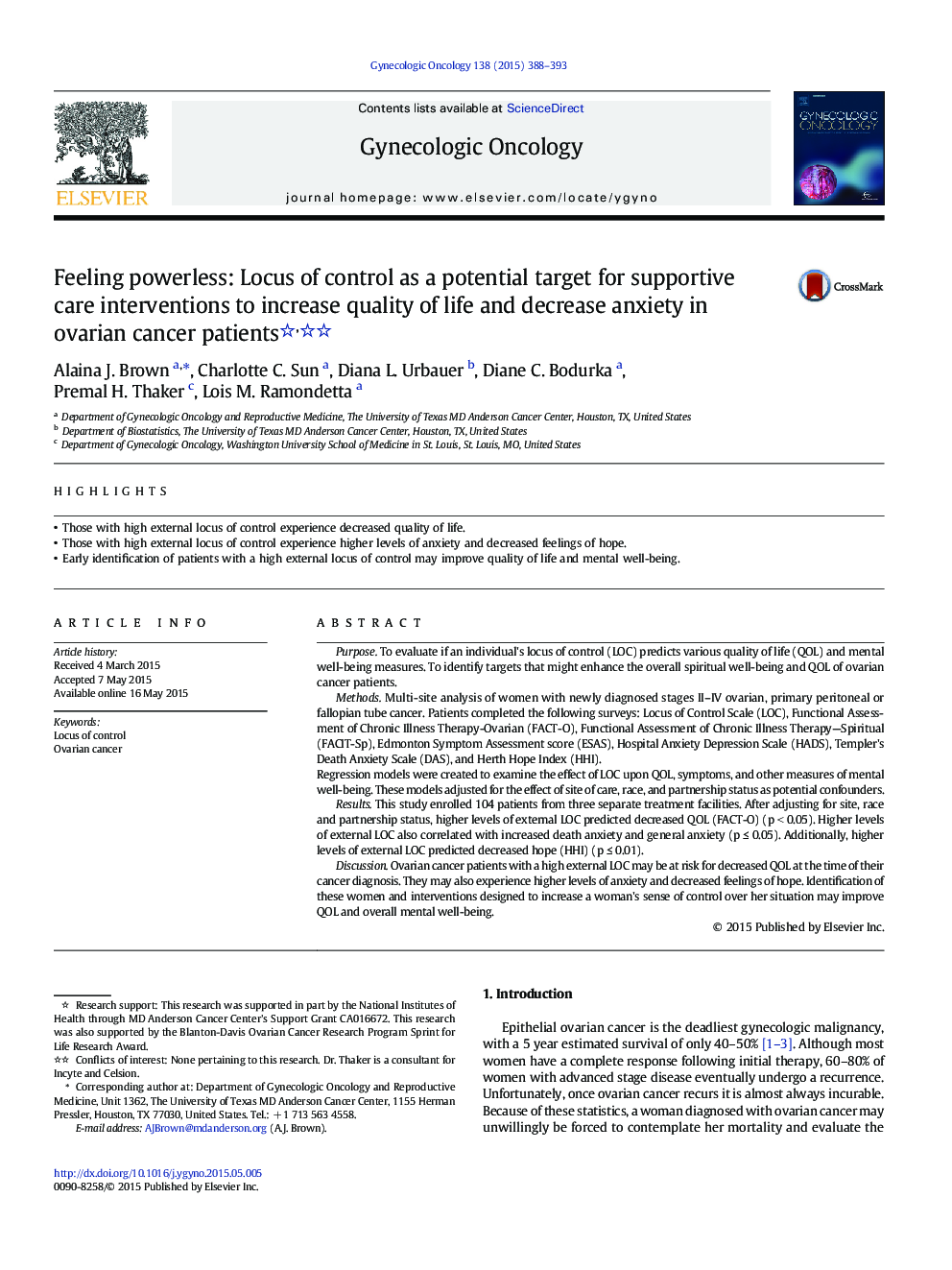| Article ID | Journal | Published Year | Pages | File Type |
|---|---|---|---|---|
| 3943165 | Gynecologic Oncology | 2015 | 6 Pages |
•Those with high external locus of control experience decreased quality of life.•Those with high external locus of control experience higher levels of anxiety and decreased feelings of hope.•Early identification of patients with a high external locus of control may improve quality of life and mental well-being.
PurposeTo evaluate if an individual's locus of control (LOC) predicts various quality of life (QOL) and mental well-being measures. To identify targets that might enhance the overall spiritual well-being and QOL of ovarian cancer patients.MethodsMulti-site analysis of women with newly diagnosed stages II–IV ovarian, primary peritoneal or fallopian tube cancer. Patients completed the following surveys: Locus of Control Scale (LOC), Functional Assessment of Chronic Illness Therapy-Ovarian (FACT-O), Functional Assessment of Chronic Illness Therapy—Spiritual (FACIT-Sp), Edmonton Symptom Assessment score (ESAS), Hospital Anxiety Depression Scale (HADS), Templer's Death Anxiety Scale (DAS), and Herth Hope Index (HHI).Regression models were created to examine the effect of LOC upon QOL, symptoms, and other measures of mental well-being. These models adjusted for the effect of site of care, race, and partnership status as potential confounders.ResultsThis study enrolled 104 patients from three separate treatment facilities. After adjusting for site, race and partnership status, higher levels of external LOC predicted decreased QOL (FACT-O) (p < 0.05). Higher levels of external LOC also correlated with increased death anxiety and general anxiety (p ≤ 0.05). Additionally, higher levels of external LOC predicted decreased hope (HHI) (p ≤ 0.01).DiscussionOvarian cancer patients with a high external LOC may be at risk for decreased QOL at the time of their cancer diagnosis. They may also experience higher levels of anxiety and decreased feelings of hope. Identification of these women and interventions designed to increase a woman's sense of control over her situation may improve QOL and overall mental well-being.
